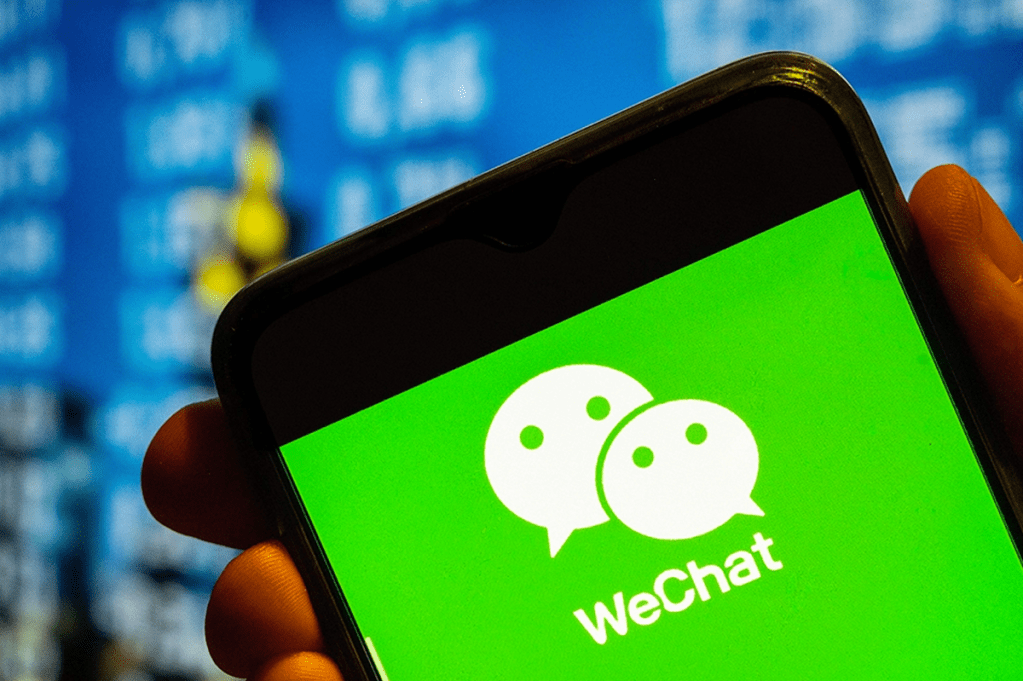Imagine you’re scrolling through Twitter. You see a new coat and, on impulse, tap “buy.” Purchase confirmed. Later, you open Twitter again to order a taxi to a restaurant and once there, you scan a QR code to see the menu, from which you order directly to the table. All of this is charged to your Twitter-wallet, filled with money you’ve received as a birthday present from friends or family, sent of course via Twitter.
These are all real examples of how my family and almost a billion other Chinese use WeChat, a Chinese super-app that has become far more than just a messaging platform. Elon Musk has already expressed his ambitions to turn Twitter into something similar — an “everything app.” If he succeeds, Western lives may soon look much more like the lives of urban Chinese.
 A customer scans a QR code while paying with the WeChat app at a local market in Beijing, China (Getty)
A customer scans a QR code while paying with the WeChat app at a local market in Beijing, China (Getty)
WeChat dominates China’s social media scene to the extent that it would be near impossible to live in Chinese towns and cities without it. Pony Ma, the app’s founder and CEO of its parent company Tencent, has described it as an “ecosystem.” Businesses create “mini-programs” that allow their services to be accessed directly through WeChat, whether that be bike hire or a doctor’s appointment or even buying stocks.
All this is made possible by WeChat Pay. Tencent saw to it that everyone from luxury department stores to street-side fruit-sellers could be paid by their customers simply scanning a QR code via WeChat and connecting their details for instant payment.
Rivals exist, of course, but alternatives such as Alipay, founded by Jack Ma (no relation to Pony), are more like PayPal than a branch of social media. Through WeChat, my eighty-one-year-old grandmother can send me money via the same chatbox that we’re having a conversation in. The app has also cleverly called payments between contacts “red pockets,” evoking the cheerful red envelopes the Chinese traditionally use to gift cash. Those physical red envelopes, a staple of my childhood, are now gone. Cash is also largely obsolete in Chinese cities and towns.
I first realized this when, visiting my hometown of Nanjing in 2016, I had no idea how to order in a restaurant. No serving staff came to us and no menu appeared. When I eventually asked, the waiter looked at me as if I’d been living under a rock: “Just scan the code.” My aunt walked me through this new world. For her, not having WeChat would have been like not owning a cell phone. Possible, but difficult. A Luddite life.
There are particular Chinese conditions that ensured WeChat’s success, which Musk will lack. For one, China’s great firewall kept out slick western competitors such as Facebook and Twitter. Musk will be facing much more competition.
Pony Ma was also ingenious in promoting the voice note, which is the medium of choice for most WeChat users. When you’re communicating in Chinese, it’s much easier to hit a record button and release to send than to type out complex characters, even for native speakers. Given that some older Chinese are effectively illiterate, voice notes are another secret to WeChat’s success.
But there are disadvantages to having everything in one app. WeChat can gather a rich haul of information on its users: location, consumption habits, social network, news subscriptions. It even knows your real identity, as a WeChat wallet can only be set up with a Chinese ID or bank card. Should one tech company have so much power?
For a time in China there was talk of the government working with Tencent and Alipay to create a social credit scheme. In the end, the Chinese Communist Party’s own suspicions of China’s tech moguls kiboshed that relationship. In the past few years, Xi Jinping has cracked down on Chinese big tech through a series of regulations and billions of dollars worth of fines. (Tencent’s shares have halved in value since February.)
In any event, Westerners are more wary than the Chinese of giving data away. There’s growing irritation in Britain and the US that PayPal shuts down users who it decides have “violated” its terms of service. There’s also the question of reliability: just last month, Kakao, a South Korean super-app with 48 million users, went down for a weekend. President Yoon Suk-yeol’s spokesperson called the outage an issue of “national security.”
Musk himself has railed against censorship, but if he succeeds in making Twitter into an “everything app,” this power will be in the hands of just one company. Our lives might be made more convenient, but there could be a high price to pay.
This article was originally published in The Spectator’s UK magazine. Subscribe to the World edition here.


















